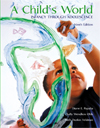 |
1 |  | 
self- : Sense of self; descriptive and evaluative mental picture of one's abilities and traits. |
 |
 |
2 |  | 
self- : Cluster of characteristics used to describe oneself. |
 |
 |
3 |  | 
single : In neo-Piagetian terminology, first stage in development of self-definition, in which children describe themselves in terms of individual, unconnected characteristics and in all-or-nothing terms. |
 |
 |
4 |  | 
real self: The self one actually . Compare ideal self. |
 |
 |
5 |  | 
ideal self: The self one would like to . Compare real self. |
 |
 |
6 |  | 
representational : In neo-Piagetian terminology, the second stage in development of self-definition, in which a child makes logical connections between aspects of the self but still sees these characteristics in all-or-nothing terms. |
 |
 |
7 |  | 
versus : In Erikson's theory, the third crisis in psychosocial development, occurring between the ages of 3 and 6, in which children must balance the urge to pursue goals with the moral reservations that may prevent carrying them out. |
 |
 |
8 |  | 
self- : The judgment a person makes about his or her self-worth. |
 |
 |
9 |  | 
: Awareness, developed in early childhood, that one is male or female. |
 |
 |
10 |  | 
differences: Psychological or behavioral differences between males and females. |
 |
 |
11 |  | 
: Behaviors, interests, attitudes, skills, and traits that a culture considers appropriate for males or for females. |
 |
 |
12 |  | 
: Socialization process by which children, at an early age, learn behavior deemed appropriate by the culture for a boy or girl. |
 |
 |
13 |  | 
: Exaggerated generalizations about male or female role behavior. |
 |
 |
14 |  | 
: In Freudian theory, the process by which a young child adopts characteristics, beliefs, attitudes, values, and behaviors of the parent of the same sex. |
 |
 |
15 |  | 
gender , or sex- : Awareness that one will always be male or female. |
 |
 |
16 |  | 
gender- theory: Theory, proposed by Bem, that children socialize themselves in their gender roles by developing a concept of what it means to be male or female in a particular culture. |
 |
 |
17 |  | 
gender : In Bem's theory, a pattern of behavior organized around gender. |
 |
 |
18 |  | 
social play: Play in which children, to varying degrees, interact with other . |
 |
 |
19 |  | 
play: Forms of play that reveal children's mental development. |
 |
 |
20 |  | 
play: Play involving imaginary people or situations; also called fantasy play, dramatic play, symbolic play, or imaginative play. |
 |
 |
21 |  | 
discipline: Tool for socialization, which includes methods of molding children's character and of teaching them to exercise self- and engage in acceptable behavior. |
 |
 |
22 |  | 
authoritarian: In Baumrind's terminology, parenting style emphasizing control and . Compare authoritative and permissive. |
 |
 |
23 |  | 
permissive: In Baumrind's terminology, parenting style emphasizing self- and self-regulation. Compare authoritarian and authoritative. |
 |
 |
24 |  | 
authoritative: In Baumrind's terminology, parenting style blending respect for a child's with an effort to instill social values. Compare authoritarian and permissive. |
 |
 |
25 |  | 
altruism, or prosocial behavior Behavior intended to help others without external . |
 |
 |
26 |  | 
aggression: Aggressive behavior used as a means of achieving a goal. |
 |
 |
27 |  | 
aggression: Aggressive behavior intended to hurt another person. |
 |



 2002 McGraw-Hill Higher Education
2002 McGraw-Hill Higher Education